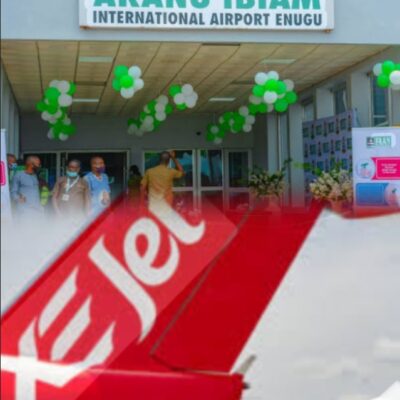BY OLAPEJU OLUBI
Minister of Aviation and Aerospace Development, Festus Keyamo, has declared Aviation is not a luxury for Africa but a powerful economic lifeline that fuels commerce, tourism and industrial growth.
The Minister made the assertion on Tuesday during a high-level virtual dialogue hosted by renowned law firm Aluko & Oyebode, where leading aviation, legal and economic experts examined the future of air transport on the continent.
Keyamo, delivering a keynote address titled “Unlocking Africa’s Aviation Potential: The Open Skies Imperative,” said aviation must be understood as “the connective tissue” binding together trade, tourism, manufacturing and regional integration.
He noted that no African country can build a competitive economy without a strong aviation sector that enables mobility, facilitates supply chains, and attracts investment.
He stressed that the economic promise of open skies remains “real, measurable and urgent,” even though the implementation of the Yamoussoukro Decision and the Single African Air Transport Market (SAATM) has progressed slowly.
He argued that genuine liberalisation would unlock new routes, reduce ticket prices, expand intra-African trade, deepen tourism and create millions of jobs across the continent.
Keyamo highlighted Nigeria’s ongoing reforms as important steps in improving the aviation investment climate.
He pointed to recent Federal High Court practice directions that strengthen compliance with the Cape Town Convention as a major confidence booster for aircraft financiers and lessors.
According to him, these reforms will cut financing costs and signal that Nigeria is committed to modern aviation governance.
He urged other African countries to harmonise their legal frameworks to ensure predictable contract enforcement, efficient dispute resolution, and improved aircraft asset protection.
The Minister emphasised that modernising fleets must remain a top priority.
He referenced Nigeria’s Memorandum of Understanding with Boeing as an example of how strategic partnerships can help build local capacity and position African airlines as global contenders.
He stressed that sustained engagement with manufacturers, lessors, and technical partners is essential for growth.
Keyamo also highlighted the need for stronger institutional capacity, fair competition rules, and deliberate investments in safety oversight systems.
He insisted that open skies must translate into local value creation through expanded maintenance, repair and overhaul (MRO) facilities, aviation training centres and indigenous technical capabilities. “Open skies must work for African jobs and African businesses,” he said.
He warned that delaying reforms would leave African economies increasingly isolated in a rapidly changing global aviation market.
In his view, the cost of hesitation is massive, higher fares, limited connectivity, fragmented airspaces, and missed economic opportunities.
“The alternative to open skies is unacceptable,” he declared.
The Minister reaffirmed the Federal Government’s commitment to pragmatic, safe and inclusive liberalisation of the sector.
He said Nigeria will continue strengthening legal frameworks, improving infrastructure, pursuing international partnerships, and ensuring that Nigerians enjoy tangible economic benefits from better connectivity and reduced logistics costs.
Keyamo urged African governments, the private sector, young professionals and financiers to embrace aviation as a catalyst for growth and continental integration.
He closed with a call for African states to convert long-standing commitments under the Yamoussoukro Decision and SAATM into concrete outcomes, more routes, competitive fares, modern fleets, efficient airports and jobs.
“Open skies is not just a policy choice, it is an economic imperative for Africa’s future,” he said. “Let us make the African sky a space of opportunity, open, safe, and prosperous for all”, Keyamo declared.
Olapeju is a journalist and aviation reporter.





